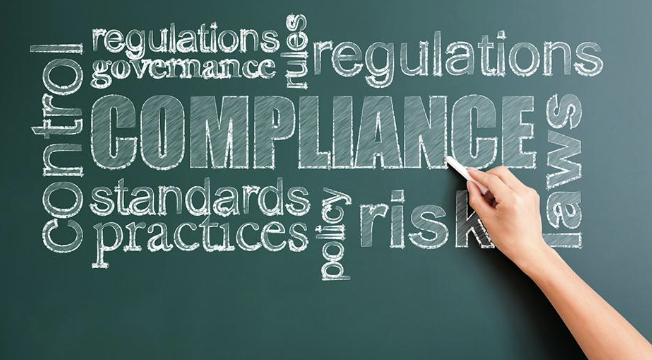Principles for the Structure of a Successful Corporate Compliance Training
- LMSPortals

- May 5, 2024
- 4 min read
Updated: May 6, 2024

Corporate compliance training refers to educational programs designed to ensure that employees understand and adhere to relevant laws, regulations, policies, and ethical standards that govern the operations of a company. The primary goal of corporate compliance training is to minimize legal and ethical risks by promoting a culture of compliance within the organization.
These training programs typically cover a wide range of topics, depending on the industry and regulatory environment. Some common areas addressed in corporate compliance training include:
Legal Requirements
Training on laws and regulations relevant to the company's industry, such as data privacy laws, anti-discrimination laws, intellectual property rights, environmental regulations, and occupational health and safety standards.
Company Policies and Procedures
Education on internal policies and procedures that govern employee behavior, such as codes of conduct, conflict of interest policies, whistleblowing procedures, and cybersecurity protocols.
Ethical Standards
Guidance on ethical decision-making and behavior in the workplace, including topics such as integrity, honesty, respect, and accountability.
Risk Management
Training on identifying, assessing, and mitigating risks related to compliance failures, including consequences for non-compliance such as legal penalties, fines, reputational damage, and loss of business opportunities.
Consequences of Non-Compliance
Education on the potential consequences of non-compliance with laws, regulations, and company policies, both for individuals and the organization as a whole.
Corporate compliance training may be delivered through various formats, including in-person workshops, online courses, webinars, seminars, and interactive simulations. The training content is often tailored to suit the specific needs of different employee roles within the organization, ensuring relevance and effectiveness.
Overall, corporate compliance training plays a crucial role in promoting a culture of integrity, transparency, and accountability within companies, ultimately helping to safeguard against legal and ethical risks while fostering trust and confidence among stakeholders.
Principles for the Structure of a Successful Corporate Compliance Training
Creating effective corporate compliance training involves several key principles to ensure its success. Here are some essential principles for structuring such training:
Alignment with Company Values and Policies: Ensure that the training content reflects the core values, mission, and policies of the organization. This helps employees understand the importance of compliance within the context of the company's goals.
Tailored Content: Customize the training material to suit the specific industry, regulatory environment, and organizational needs. Generic training may not resonate with employees as effectively as content that directly relates to their roles and responsibilities.
Interactive and Engaging Format: Use a variety of interactive elements such as quizzes, case studies, simulations, and real-life examples to engage learners. Interactive formats keep employees actively involved and enhance their understanding and retention of the material.
Clear and Concise Communication: Present information in a clear and concise manner to avoid confusion or misinterpretation. Use simple language and avoid jargon, especially when discussing complex regulatory concepts.
Regular Updates and Refreshers: Compliance regulations are constantly evolving, so it's important to update training content regularly to reflect any changes in laws or industry standards. Additionally, periodic refresher courses help reinforce key concepts and ensure that employees stay up-to-date with compliance requirements.
Management Support and Involvement: Gain support from senior management and encourage their active involvement in promoting a culture of compliance. When employees see that compliance is a top priority for leadership, they are more likely to take it seriously.
Accessible and Flexible Delivery: Make the training easily accessible to all employees, regardless of their location or schedule. Consider offering the training in multiple formats (e.g., online modules, in-person workshops) to accommodate different learning preferences and work environments.
Measurement and Evaluation: Establish clear metrics to assess the effectiveness of the training program, such as completion rates, quiz scores, and employee feedback. Use this data to identify areas for improvement and make adjustments as needed.
Incorporate Ethical Decision-Making: Include modules on ethical decision-making to help employees navigate complex situations where compliance may be ambiguous. Encourage discussions around ethical dilemmas and provide guidance on how to make ethical choices in the workplace.
Continuous Improvement: Treat compliance training as an ongoing process rather than a one-time event. Solicit feedback from employees, monitor regulatory changes, and regularly evaluate the effectiveness of the training program to ensure that it remains relevant and impactful.
By adhering to these principles, organizations can develop compliance training programs that effectively educate employees, promote ethical behavior, and mitigate compliance risks.
About LMS Portals
At LMS Portals, we provide our clients and partners with a SaaS-based, multi-tenant learning management system that allows you to launch a dedicated training environment (a portal) for each of your unique audiences.
The system includes built-in, SCORM-compliant rapid course development software that provides a drag and drop engine to enable most anyone to build engaging courses quickly and easily.
We also offer a complete library of ready-made courses, covering most every aspect of corporate training and employee development.
If you choose to, you can create Learning Paths to deliver courses in a logical progression and add structure to your training program. The system also supports Virtual Instructor-Led Training (VILT) and provides tools for social learning.
Together, these features make the LMS Portals platform the ideal SaaS-based platform to drive your corporate compliance training programs.
Contact us today to get started or visit our Partner Program pages



Comments